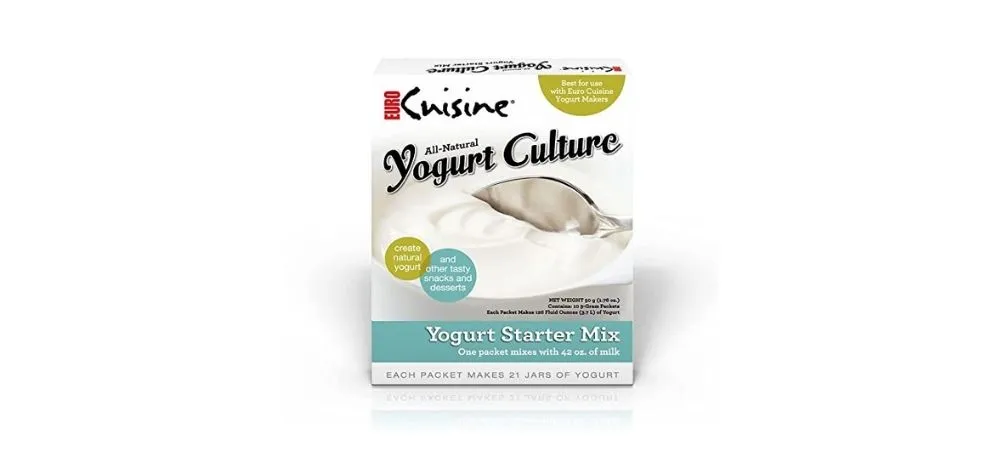Antibiotics are incredibly helpful in fighting bacterial infection, and most people do not know that some foods can also be consumed while taking antibiotics. Antibiotic treatment for most bacterial infections can provide the most effective treatment.
Unfortunately, the drug also has side effects as it kells the healthy gut bacteria too. Rarely can they cause unpleasant symptoms? Sometimes patients find it possible to reduce or altogether avoid these effects through simple lifestyle changes.
Often the drug causes diarrhea, as it changes gastrointestinal health. Consumption of yogurt may help treat a cold. Four cups of yogurt containing 100 million live active bacteria effectively reduce gastrointestinal infections.
|
According to Quora, You should consume yogurt after 2 hours after taking antibiotics |
So, how much yogurt should you eat when consuming antibiotics?
You can safely consume 125ml of yogurt with Lactobacillus GC twice a day when you are consuming antibiotics. Some researchers even suggest taking up to 2 servings of 240ml yogurt but you should begin with the small servings to analyze the potential effect.
According to clevelandclinic, one or two servings of plain greek yogurt is highly beneficial for patients on antibiotics.
What Are Antibiotics?
Antibiotics help combat bacterial infections caused on human and animal skin by preventing them from developing or spreading. Essentially, antibiotics can help you get rid of the infection and even prevent growth by killing the bacteria infecting your system.
In addition, antibiotic use can lead to side effects. It could include common ailments such as nausea or diarrhea and severe problems, including severe allergic reactions. Some foods may reduce or even improve these problems.
What Should You Eat During and After Antibiotics?
Fortunately, several pieces of research have revealed that including live healthy bacteria in your diet, commonly referred to as probiotics, can decrease the risk of antibiotic-related diarrhea.
According to one such analysis of 23 research, including nearly 400 youngsters, supplementing with probiotics simultaneously as antibiotics may reduce the chance of diarrhea by more than 50%.
According to a more comprehensive analysis that involved over 11,000 participants and nearly 12 years of research, the same appears to be true in adults and children.
|
Lactobacilli and Saccharomyces probiotics were found to be particularly beneficial in animal studies. |
On the other hand, probiotics have been used for thousands of years to heal and support a wide range of ailments. If Antibiotics and Probiotics are taken together, the positive effect of probiotics will nullify.
Probiotic Yogurt should also be taken after antibiotics to help replenish the intestine’s lost microorganisms.
It may be preferable to take a probiotic that contains a combination of several species of probiotics rather than just one if you use antibiotics.
Eat High-Fiber Foods
Although the body cannot absorb fiber, it can be consumed by your gut flora, which helps to promote their development.
High-fiber foods include:
- Whole grains (porridge, brown rice and whole grain bread)
- Nuts
- Beans
- Berries
- Seeds
- Broccoli
- Lentils
- Bananas
- Peas
- Artichokes
Foods rich in dietary fiber stimulate the growth of probiotic microorganisms. It may also aid in digestion and weight loss. They may also decrease the development of some pathogenic bacteria.
On the other hand, fiber slows down food digestion. As a result, drugs are also less readily absorbed in the body.
As a result, it is suggested that you temporarily avoid high-fiber meals while on antibiotics and concentrate on eating them after the treatment has ended.
Eat Fermented Foods
Microbes are responsible for Fermenting foods, such as yogurt, cheese, sauerkraut, and kombucha. They are a good source of nutrition for the microbiome.
On the other hand, probiotics can help your gut microbiota recover from antibiotic use by including a variety of healthy bacterial species such as Lactobacilli.
Lactobacilli and other beneficial germs are present in more significant quantities in the intestines of people who consume yogurt or fermented milk. Kimchi and fermented soybean milk have many of the same health advantages, such as aiding in the growth of good bacteria like Bifidobacteria in the gut.
Therefore, fermented foods may help improve gut health after antibiotic use.
Some studies have shown that people taking antibiotics and yogurt should eat regular or probiotic-fortified yogurt to relieve antibiotic-associated diarrhea.
Eat Prebiotic Foods
Prebiotics, unlike probiotics, are non-living compounds that feed the beneficial microorganisms in your stomach. Healthy intestinal bacteria break down and ferments the fiber, allowing them to flourish. Many high-fiber meals are prebiotic.
On the other hand, other foods are not high in fiber, but they do serve as prebiotics by assisting the development of beneficial bacteria such as Bifidobacteria. Red wine, for example, contains antioxidant polyphenols that gut bacteria absorbs rather than human cells.
A single study discovered that ingesting red wine polyphenol extracts for four weeks might significantly boost the amount of good Bifidobacteria in the intestines while lowering blood pressure and cholesterol levels.
Another important consideration is that cocoa contains antioxidant polyphenols that have beneficial prebiotic effects on the gut microbiota.
Cocoa polyphenols have are related to higher levels of healthy Bifidobacteria and Lactobacillus in the intestine. They also lead to lower levels of unfavorable germs such as Clostridia.
As a result, eating prebiotic foods once the antibiotic course is complete, restores the beneficial gut microorganisms that antibiotics destroyed.
Here are the Eight Probiotic-rich foods that can combat the side effects of Antibiotics:
- Cheese like Mozzarella, Cottage Cheese, Gouda
- Miso
- Pickles
- Natto
- Traditional Buttermilk
- Tempeh
- Sauerkraut
- Kefir
How Much Should One Eat Yogurt When On Antibiotics Medication?
Antibiotics are potent medications. They are effective in treating and fighting various bacterial illnesses. Sinus infections, ear infections, the common cold, sore throat, flu, and urinary tract infections are examples of illnesses that antibiotics usually treat.
Hence, antibiotics can effectively combat bacterial infections. However, while they may cure the infection, taking them might destroy good bacteria and disturb the normal generating of healthy bacteria.
Antibiotics can affect the gut microflora, causing diarrhea, vomiting, and nausea in some people while even bringing about yeast infections in women. Changes in the gut microflora might happen after just a week of antibiotic use.
The human body contains both good and bad germs, and probiotics such as those in yogurt include a lot of beneficial germs that assist the body in resisting infections.
Having a high number of beneficial microorganisms benefits the body in many ways.
Probiotics are tiny organisms (single-cell microorganisms) that naturally live in the body and help to maintain a healthy microbiome. They’re also present in other body areas, including the mouth, lungs, skin, and urinary tract.
If you become ill, harmful germs increase in your body, so eating yogurt with probiotics to restore equilibrium while boosting your immune system is an intelligent idea.
Conclusion
A healthy gut isn’t simply about taking a probiotic pill every day. Everyday diet and exercise are essential since many lifestyle factors influence your gut bacteria.
However, probiotic pills may have some minor drawbacks. But taking natural probiotics as present in yogurt can help in improving your gut health.
Be sure to consult with your doctor first to ensure you’re using the correct strains in the correct dosages and avoid unwanted effects.










